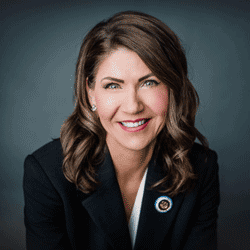

Thune, Colleagues Reintroduce Bipartisan Legislation to Expand and Strengthen Local Meat Processing Capabilities
WASHINGTON — U.S. Sens. John Thune (R-S.D.) and Jeff Merkley (D-Ore.) and U.S. Reps. Chellie Pingree (D-Maine) and Jeff Fortenberry (R-Neb.) today reintroduced the Strengthening Local Processing Act, bipartisan, bicameral legislation that would provide much-needed federal support to America’s small meat and poultry processors and help strengthen and streamline their operations. The legislation would give small food processors more access to information that is critical to food safety planning, allow more inspector-approved meat products to be sold across state lines, and funnel federal dollars toward training, education, and technical assistance grants. The legislation is also co-sponsored by Sens. Susan Collins (R-Maine), Angus King (D-Maine), Mike Rounds (R-S.D.), Tina Smith (D-Minn.), Kevin Cramer (R-N.D.), and Bob Casey (D-Penn.) and Rep. Ann McLane Kuster (D-N.H.).
“The pandemic highlighted significant vulnerabilities in our nation’s food supply chain, especially when it comes to meat processing capacity,” said Thune. “South Dakota’s producers work hard to raise high-quality livestock, and we need to invest in expanding processing capacity to help meet consumer demand for their products. I’m proud to team up with Sen. Merkley and Reps. Pingree and Fortenberry on this bipartisan legislation to support to America’s small meat and poultry processors and help strengthen and streamline their operations.”
“The Strengthening Local Processing Act would assist and encourage small local processors in rural areas to expand processing capacity,” said Scott VanderWal, president of the South Dakota Farm Bureau. “In the last year, we have seen increased consumer demand for locally sourced and processed meat products, and livestock producers are just as anxious to have access to additional local markets.”
“The United States Cattlemen’s Association appreciates the leadership of Senator Thune in advancing this legislation to support our independent meat processing sector,” said Justin Tupper, vice president of the United States Cattlemen’s Association.
“Local and regional meat processors are critical in securing our nation’s food supply, and by offering this technical and financial assistance, we can better help set them up for success. With only four multinational meatpacking companies controlling over 80 percent of the meatpacking business in this country, expanding the reach of independent processors brings more competition to the marketplace – resulting in better prices for producers and consumers AND a more resilient food system.”
“The Strengthening Local Processing Act provides assistance to local processors to utilize the tools that are available to them but lack the time and expertise to work through the process of expanding their processing opportunities,” Eric Jennings, president of the South Dakota Cattlemen’s Association. “We particularly appreciate Senator Thune taking steps to address the labor shortage in South Dakota processing plants.”
“Cattle producers have been hit hard by the markets largely controlled by the big four meat packing oligarchs,” James Halverson, executive director of the South Dakota Stockgrowers Association. “The South Dakota Stockgrowers Association appreciates this common-sense legislation to bolster local processing within our industry. Empty meat counters during the COVID-19 pandemic simply highlighted the gaping hole in our production system that needs attention. We hope this legislation can move forward with bipartisan support for the betterment of American producers and consumers alike.”
“It became quite evident during the COVID-19 pandemic just how essential our meat processing sector is to keeping food on the tables of our consumers. Many consumers searched for locally raised pork when they couldn’t find it on the grocery store shelves,” said Shane Odegaard, president of the South Dakota Pork Producers Council. “Assisting our local small meat processors with tools and inspection resources would help open avenues to sell locally sourced meat to consumers both in state and across state lines, which would be extremely beneficial to small processors and our local farmers.”
“As a meat processor and stakeholder, I support the Strengthening Local Processing Act,” said Ken Charfauros, owner of Wall Meats. “During the height of the protein shortages, small processors were asked to accomplish large processing tasks. That task has proven to be daunting to say the least. The system shortage was not caused by lack of protein available, but a lack of processors at the local level coupled with the high demand (due to shortages) for protein in the local and regional markets. Processors today, on their own, are making adjustments to help improve themselves through investments in training personnel and updating equipment. That too is proving to be daunting and expensive just to keep up. Pressure on protein processors continue today, and they now face processing dates into 2022. Ultimately, this bill will benefit and strengthen local economies and secure jobs by supporting local processors. I look forward to continued service to our community and welcome any assistance to continue that service. I personally applaud Senator John Thune and the authors of this bill for identifying and focusing on local, regional, and national food security concerns.”
A summary of the Strengthening Local Processing Act can be found here. Full text of the legislation is available here.




 Republican Representative Will Mortenson (District 24) has
Republican Representative Will Mortenson (District 24) has 
